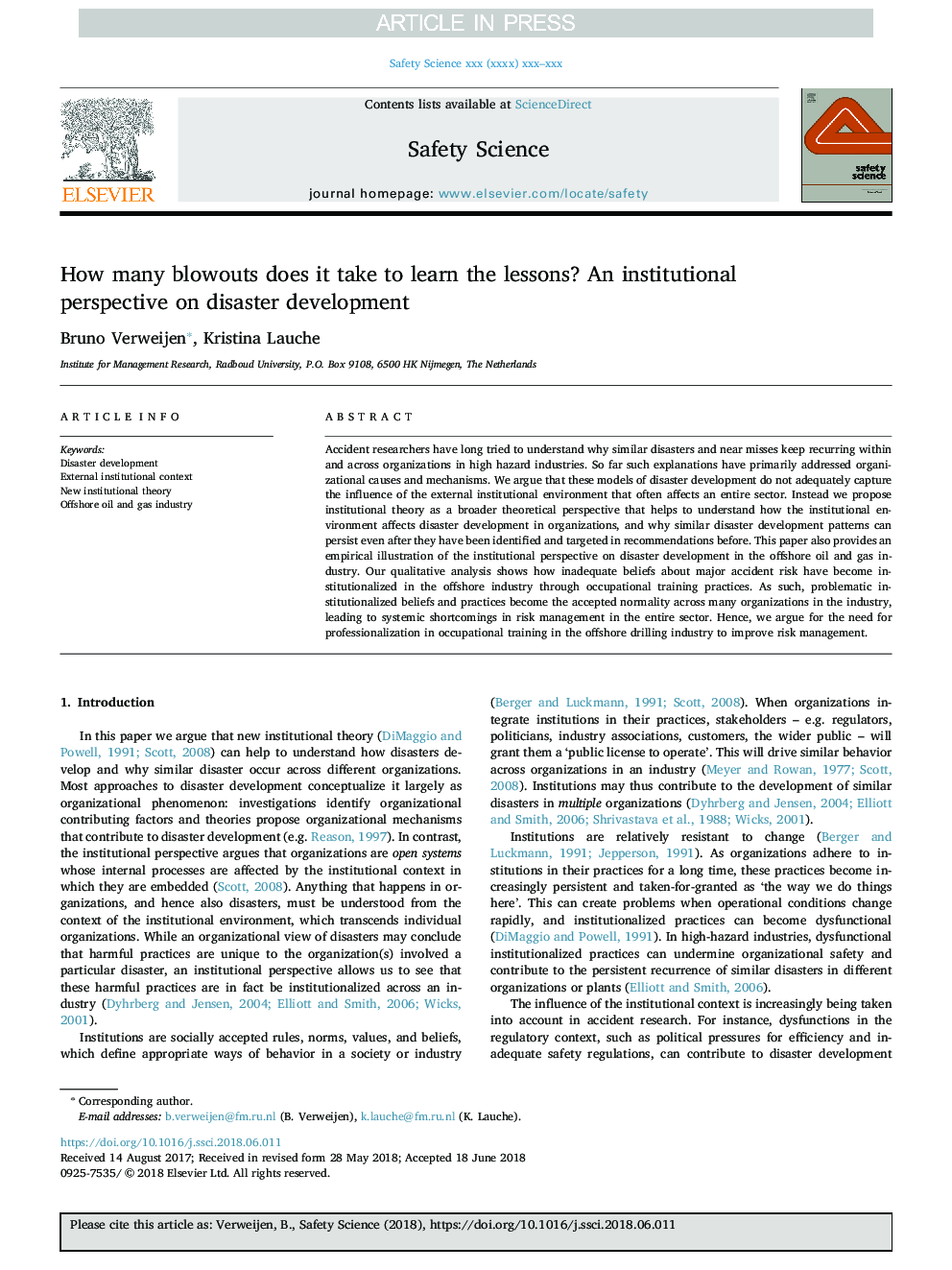| Article ID | Journal | Published Year | Pages | File Type |
|---|---|---|---|---|
| 11263391 | Safety Science | 2019 | 8 Pages |
Abstract
Accident researchers have long tried to understand why similar disasters and near misses keep recurring within and across organizations in high hazard industries. So far such explanations have primarily addressed organizational causes and mechanisms. We argue that these models of disaster development do not adequately capture the influence of the external institutional environment that often affects an entire sector. Instead we propose institutional theory as a broader theoretical perspective that helps to understand how the institutional environment affects disaster development in organizations, and why similar disaster development patterns can persist even after they have been identified and targeted in recommendations before. This paper also provides an empirical illustration of the institutional perspective on disaster development in the offshore oil and gas industry. Our qualitative analysis shows how inadequate beliefs about major accident risk have become institutionalized in the offshore industry through occupational training practices. As such, problematic institutionalized beliefs and practices become the accepted normality across many organizations in the industry, leading to systemic shortcomings in risk management in the entire sector. Hence, we argue for the need for professionalization in occupational training in the offshore drilling industry to improve risk management.
Related Topics
Physical Sciences and Engineering
Chemical Engineering
Chemical Health and Safety
Authors
Bruno Verweijen, Kristina Lauche,
